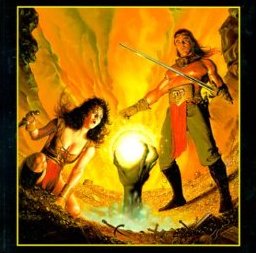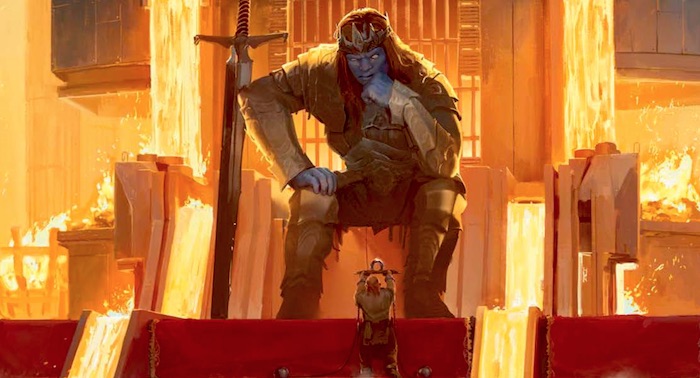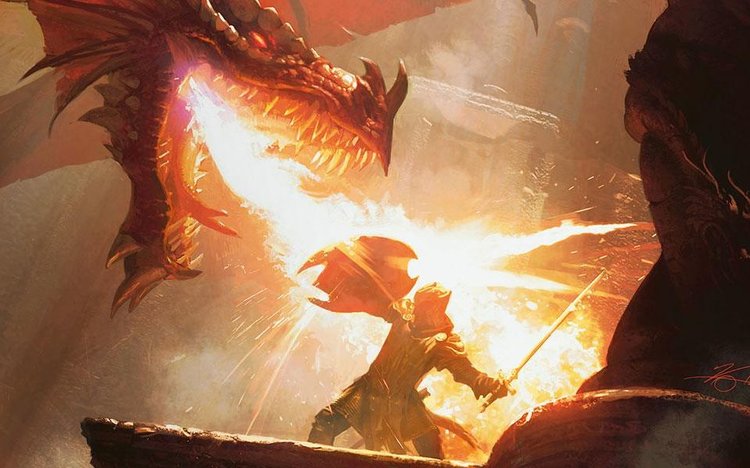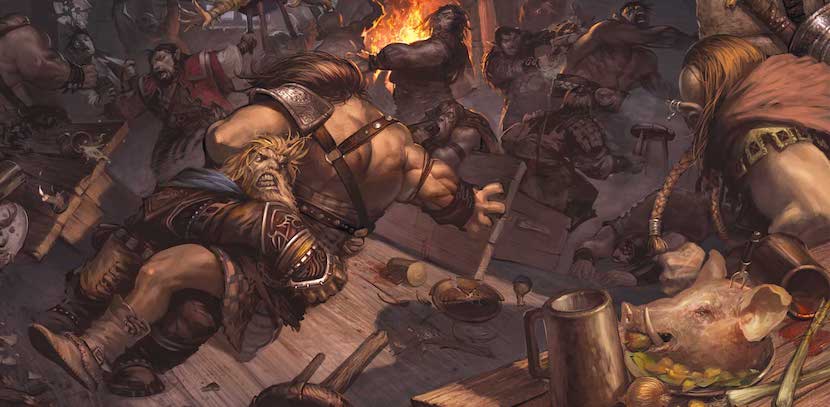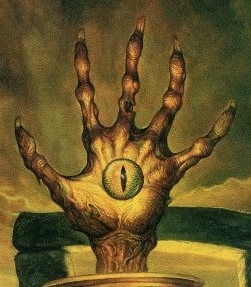D&D: Handling Treasure In Your Games – Spread The Wealth
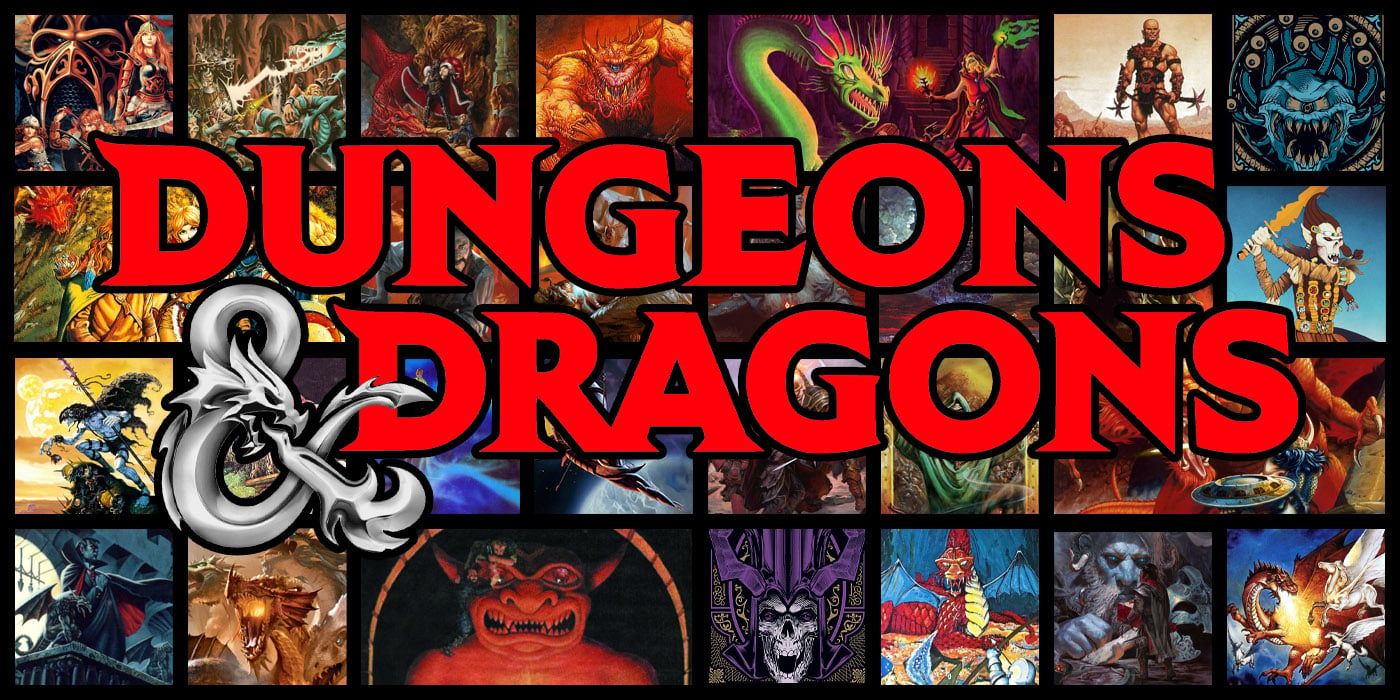

Treasure is good for more than just acquiring in piles, unless of course you’re a dragon…
Today, we’re having a very important talk. This subject is about something more important to adventures than anything else – Let’s talk about treasure. Treasure is an important part of any D&D game. Arguably it’s an important part of any RPG, really, but as soon as your systems start getting more and more esoteric, so too does the very idea of treasure. Whereas in D&D, treasure has an intrinsic meaning in the game–and by extension it’s a known quantity that is calculated for in the level formula. No wait come back! I promise this isn’t going to be super dry and full of theory.
Just the front part. All that’s really important to understand is how wealth works in the game. Often it’s a part of the reward players get for successfully completing adventures. Or even just for finishing combat encounters. Monsters slain come with treasure. Kill people, take their stuff–it doesn’t get any more D&D than that. And once you’ve killed people and taken their stuff, you can use that stuff to kill more people–or better people–and take their stuff, and so on and so on.
It’s even factored in to how players level up. There’s a wealth-by-level table that says by X level you should have X amount of gold–and the power of that much gold can really shape how your character works. That’s why magic items, or heck, even plate mail have such high price tags. They’re not meant for 1st-level characters, or even 3rd level characters. Plate Mail gives you the best base AC in the game, barring magic. But it costs 1,500 gold pieces, which you’re not likely to have for a few levels.
This holds doubly true for magic items, and, depending, you may not even be allowed to buy them at all. Now, in previous editions, this could be problematic–characters were expected to have certain magical equipment bonuses past a certain level. It was baked into the way monsters ACs and resistances scaled as you leveled up, and was built into their attack bonuses. Higher level monsters had significantly higher attack bonuses and defenses. And while 5th Edition has strayed from that model–you, one hundred percent, could take a group of characters from level 1-20 without ever touching so much as a +1 Longsword and be just fine–it still carries with it a little of that expectation.
Kill things, get money, buy shiny stuff. But that cycle can turn into a grind after a little while. And it kind of makes characters a little metagamey (which is fine, don’t get me wrong). But, depending on how it goes, you’ll never have a big score, so to speak. If all you’re ever doing is earning just enough money to get the next biggest piece of loot, then you’re only ever getting (effectively) just one or two items of treasure. Which, again, is fine–but then you never have that moment where it feels like the characters have made it.
I’m here today to talk about how you can have that moment. You could let your players have 50,000 gold pieces and have it not bring your campaign crashing to a halt. It’ll change things, that’s for sure, but even if your players end up with what feels like a ridiculous amount of money in their coffers, you can help them spend it in a way that advances rather than ruins your campaign.
What do you mean I can’t spend all of my gold on alchemist’s fire…
The trick is to have them buy in to your world. I mentioned this briefly in another article about letting your players take the initiative. But if you give them enough money to buy the big ticket items out there (these are things like castles and guild halls and galleons), you might be surprised at how far they’ll go. Heck, even just let them buy a manor at one end of town. Give them something that they’ve invested in that lets their characters feel cool but it doesn’t affect how the game shakes out.
After all, when your Fighter is facing down a dragon, it makes no mechanical difference if your Fighter owns a castle. I mean, it might make some if you were fighting in or around the castle, or if your Fighter had an army of 50 bowmen, and 100 men-at-arms at her disposal, but those are situationally impactful. For the most part, it’s just something cool about the character that helps drive their stories.
I could actually really use 50 bowmen and 100 men-at-arms right now…
But while that might not make a difference in the fight, mechanically, picture that Death Knight threatening to take over the castle, or to raze the town the characters have built from the ground up and suddenly, without making any kind of mechanical changes, the whole timbre of the fight has changed. Now there are stakes.
The earlier editions of D&D knew this. That’s why every class had a level (usually around 9th, but it varied) when characters could build a stronghold and start attracting followers. Fighters could have a castle and a small army. Wizards could build a tower and attract apprentices. Clerics who built a temple would find themselves with more acolytes than they knew what to do with. And sure, this is extra paperwork, but it makes the characters feel cool. Like they’re worthy of respect, or that they really are these great heroes, to have people who want to learn from and serve them. To say nothing of any status that might be conferred from being one of the landed nobility.
Benefits like never having to pay for a bar brawl…
And it’s something that’s missing from later versions of the game. Something I think can help add a lot of “weight” to the characters. Building a castle is very much something that changes the face of the game world. It makes players sit up and take ownership of what their characters own.
So how do we encourage players to make purchases/decisions like these? Well it’s tricky, but the best way to start is by giving them money. Let them find the chest full of platinum pieces that’s worth more than their three closest relative’s huts if you want. But then give them an outlet for all that wealth that ties them to the world. Have a local lord grant the players land as reward for a quest, or have the players be put in charge of establishing a settlement. Now this won’t work for every story, but these are a few ways you can keep even large amounts of money from getting out of hand.
Most of the time games are all about getting from one thing to the next to the next, but if you let your players have time to build themselves a home base, or otherwise invest their money in the world, you’ll find you start getting room to breathe as they take more and more interest in the goings on of the world.
And we all know, people with a vested interest in the goings on of the world are never evil…
I know this seems like overly simple advice–“oh just give the players lots of money, they’ll know what to do.” I’ll admit, it takes a little bit of finesse–give your players too much money right away and it loses any meaning. Or they’ll just try to spend it on magic swords. Or your players might not be interested in buying a pretend castle or fancy house (though I imagine they’re more into than you’d think). So you’ll have to feel it out, and be ready to come up with ways to bleed off some of that extra gold if the worst comes to the worst and you find your players doing little more than ruining the local (fantasy) economies. Thieves can always be a nice touch (and “recovering our stolen gold” is a great adventure for heroes of all levels).
Regardless, the next time you’re figuring out what exactly is in that secret dwarven vault that you know the players are going to find–stop and think about how your players could use that money.
Worst case scenario–giant Scrooge McDuck-esque vaults where the players store and swim in their wealth…

